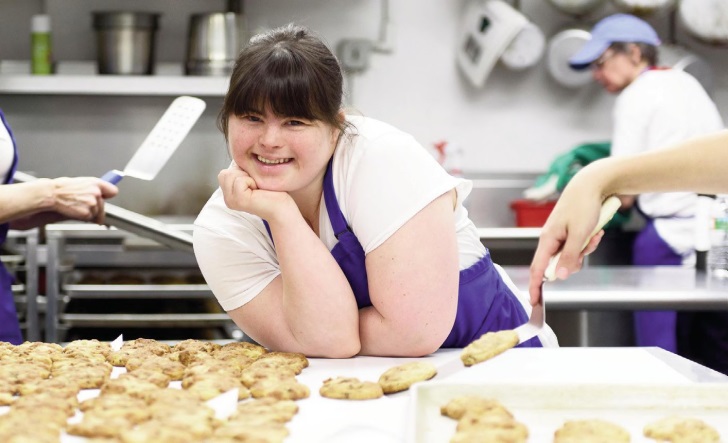HOW TO GET STARTED
Virginia Commonwealth University has guidance on owning a business. A process called "Discovery" is used in which individuals with disabilities seeking employment use the framework of customized employment. During the process, people with disabilities find the types of self-employment that fit their interests and skills.
PUTTING TRANSITION GOALS IN ThE IEP
Getting appropriate IEP goals for transition will allow students with disabilities to obtain the skills needed to own and operate a business. According to the "Road to SelfSufficiency: A Guide to Entrepreneurship for Youth with Disabilities," there are five steps to accomplish this:
- Start with basic information: Students will need to understand basic economics and opportunities for careers. Students need skills to start and operate a business.
- Students need to be aware of needed competencies: This means they would have to understand skills they'll need. Students could be taught budgeting in math, or marketing in language/communication class.
- Getting creative: Students with disabilities will need to do career exploration based on interests and skills. Then they can create a plan for their business. Community-based instruction or structured learning experiences with small business owners will help students gain knowledge and skills in this area.
- Starting up a business: Some students may need help implanting an idea for business. Community colleges and adult education have ideal classes in this arena.
- Growth: Student entrepreneurs may need additional support throughout the process and should ask for help if they are struggling.
WhAT IS IT REAllY LIKE TO OWN A BUSINESS?
A panel discussion on small business ownership by individuals with disabilities was convened by HoneyBook. People with disabilities make up 20% of the population and are more likely to be self-employed. People with disabilities describe what it's like to be self-employed. They say their family and friends "don't get it" and this is a way to follow their dreams. The panelists discuss what is an "accommodation" and
WORK IN PROGRESS : COLLETTE'S COOKIES
Collette's Cookies colletteys.com
Collette Divitto wanted a job making cookies, but kept getting turned down. So she started her own business called Collette's Cookies. Collette began by selling at a local market. News spread over social media. Then a nonprofit that helps people with disabilities gave her office space to train others. Collette has since created jobs for other workers with intellectual or developmental disabilities. Watch her video at youtube.com/watch?v=ejPrsIWOg18

what is "reasonable." They also discuss disability disclosure and fear of rejection by potential employers. Common barriers and work flexibility are also covered.
CONCERNS ABOUT LOSING BENEFITS BASED ON INCOME
Some students with disabilities may have benefits through SSI (supplemental security income) or SSDI (Social Security Disability Insurance) that they are concerned they will lose if they earn too much income. However, "work incentive" programs have been developed to permit individuals with disabilities to work and retain benefits.
Ticket to Work (TTW) is a program under the Social Security Administration. It
applies to adults ages 18-64 who get either SSI or SSDI and want to work. TTW helps people with disabilities to be financially independent with supports/services and includes options for self-employment. Another program is PASS (Plan to Achieve Self Support) which lets students set aside resources to start their own business.
MORE RESOURCES FOR PEOPLE WITh DISABILITIES TO START A BUSINESS
There are additional resources to help students with disabilities with self-employment. These include:
- Small Business Help from SCORE: SCORE is a network of small business owners who volunteer to help others.
WORK IN PROGRESS : A FINAL WORD FROM AN ADVOCATE
Kyann Flint knows that owning a business works for people with disabilities and that "disability is diversity." The pandemic made employers change the structure of employment, she says. "For years, the disability community had advocated for this work-from-home structure, but until organizations were driven by the health benefit of society as a whole, the request for this accommodation did not seem viable." Kyann says it took COVID-19 to make large companies like Amazon, Microsoft and Google realize that this could work. "We now see that working from home is indeed viable," adding "disability drives innovation."
